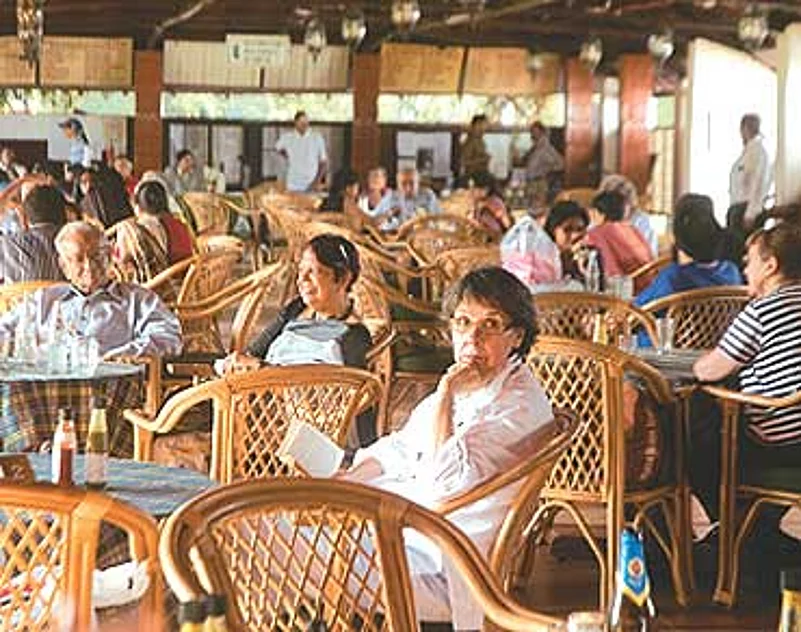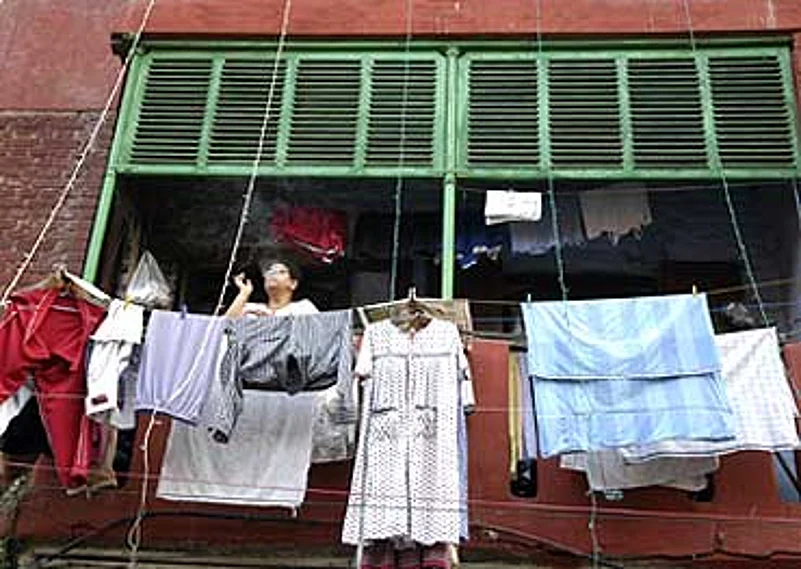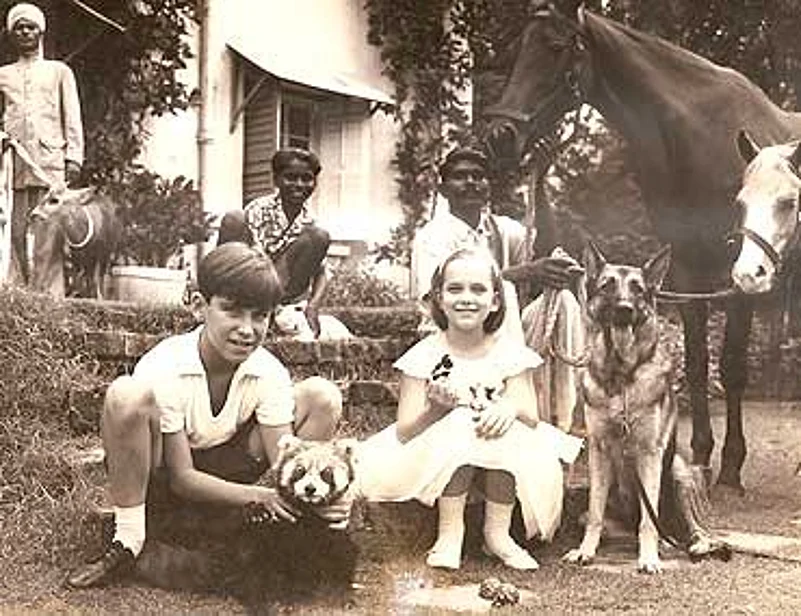"If there is one place on the face of the earth where all the dreams of living men have found a home from the very earliest days when man began the dream of existence, it is India."
Romain Rolland (1866-1944), French scholar, Nobel Prize winnerand friend of Mahatma Gandhi
For 25 years our family home was a beautiful old house in Ballygunge, with its own garden menagerie—Cindy the sambar, from Orissa, Pepe the mongoose, Chacha the lion cub (whose mother had bitten off his nose in a zoo), Palamau the abandoned tiger cub from Bihar, and Prince the leopard cub. The endless stream of exotic orphaned animals, besides the dogs and horses we owned, was my pride and joy. One day our two demoiselle cranes took to the air. With great difficulty we retrieved them from Park Circus. Later, my parents moved to Tollygunge Club, where my father was the managing member for the next 25 years. My earliest memories of "Tolly" are of riding out into beautiful rural Bengal, with its green, green paddy fields. How things have changed! But it still feels warm and fuzzy to return to the club and be greeted with cries of "chhota baba!".

Mellow company: The Tollygunge Club in Calcutta is still going strong
As the years passed, many of my friends left Calcutta, and the city’s big heart was steadily ravaged by the lack of infrastructure, fiery politics and a wave of immigrants. I was in my teens when I realised with clarity that I had to desert my native place. The turning point was 1971, when life in my beloved city became a bewildering nightmare because of the Naxalite attacks. The then secretary of Tollygunge Club—a place that held so many happy memories—was murdered at his desk by a disgruntled worker. That same year, the Tolly stables were set alight in the middle of the night. The syces were woken by Toby the guard dog, and they rushed the horses through the club gate to safety. For me it was time to move on.

Fade-proof: Thousands mourned in Calcutta when Bob Wright passed away in 2005
Calcutta will always hold a strong influence over me, but it is India that is engraved on my heart. Although my family is of British origin, we have been here for generations. There is no other place that I would call home; I was born in India and have lived here all my life, and it is where I hope to die.
My father, Bob Wright, was born in 1924 in Lal Bazaar, Calcutta, where his father was Commissioner of Police. He was "sent home" to boarding school at the age of five, and after attending Cambridge University and fighting in World War II, he returned to Calcutta in 1947 as a ‘boxwallah’ to join Andrew Yule, then the largest British managing agency. He became a legendary sporting and social figure who fought tirelessly for the city’s causes. A friend of Jyoti Basu and Mother Teresa, he used to entertain tramloads of Mother’s children every year at Tolly.
When my father died in 2005, at the age of 80, in the city of his birth, a crowd of thousands accompanied his body to the crematorium, bringing traffic to a halt. As people streamed out of their houses to see who had died, I could hear the murmurs "Wright sahib, Wright sahib" and hear the huge sighs. A friend wrote that "Kolkata without Bob will be like the city without one of its landmarks. It is the end of an era".

Old hold: The writer with her brother
My mother, Anne, was brought up in central India, the daughter of a senior ICS officer of the Central Provinces and Berar. Her heart was never as intrinsically entwined with Calcutta as mine, and her yearning for wilder places gave me the courage to move on. All our holidays were spent in the jungles of Bihar. It was here in the late 1960s that droughts set off a terrible bout of poaching that made my parents hang up their rifles and take up the cause of conservation.
My mother went on to become a founder-trustee of WWF-India and a member of the government’s original 1970 Tiger Task Force. And for 19 years she was also a member of the Indian Board for Wildlife.
In the early 1970s, I forsook my place of birth and found my new spiritual home in the jungles of Madhya Pradesh. My parents followed me in the early 1980s and founded Kipling Camp, adjoining Kanha National Park. Today I may be a reluctant resident of Delhi, with occasional warm forays to Calcutta, but it is Madhya Pradesh that has captured my heart.
(Wildlife activist Belinda Wright is founder and executive director of the Wildlife Protection Society of India.)


























